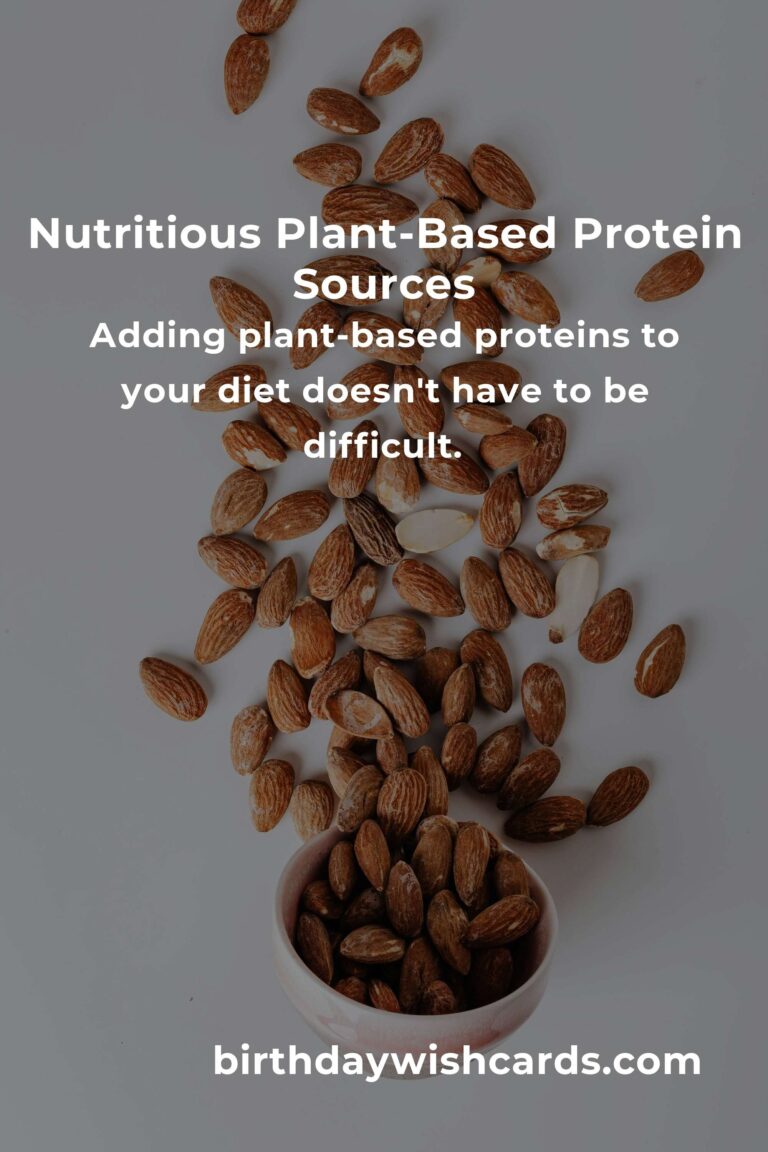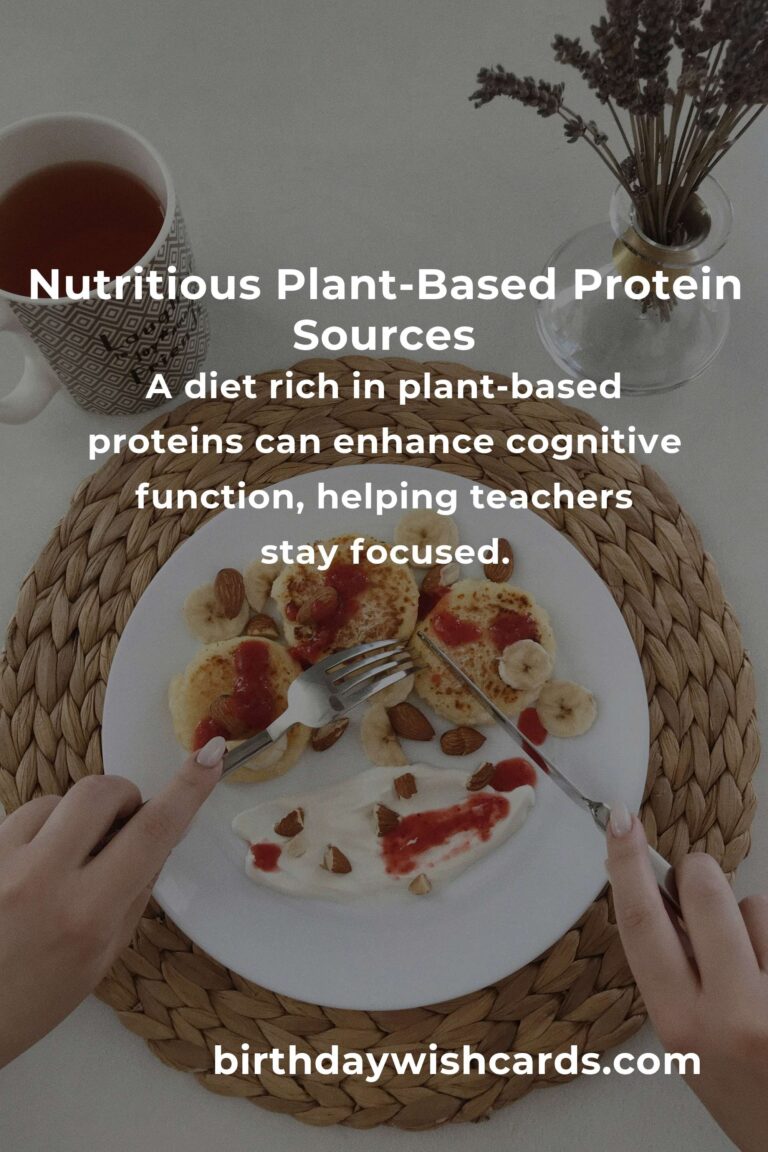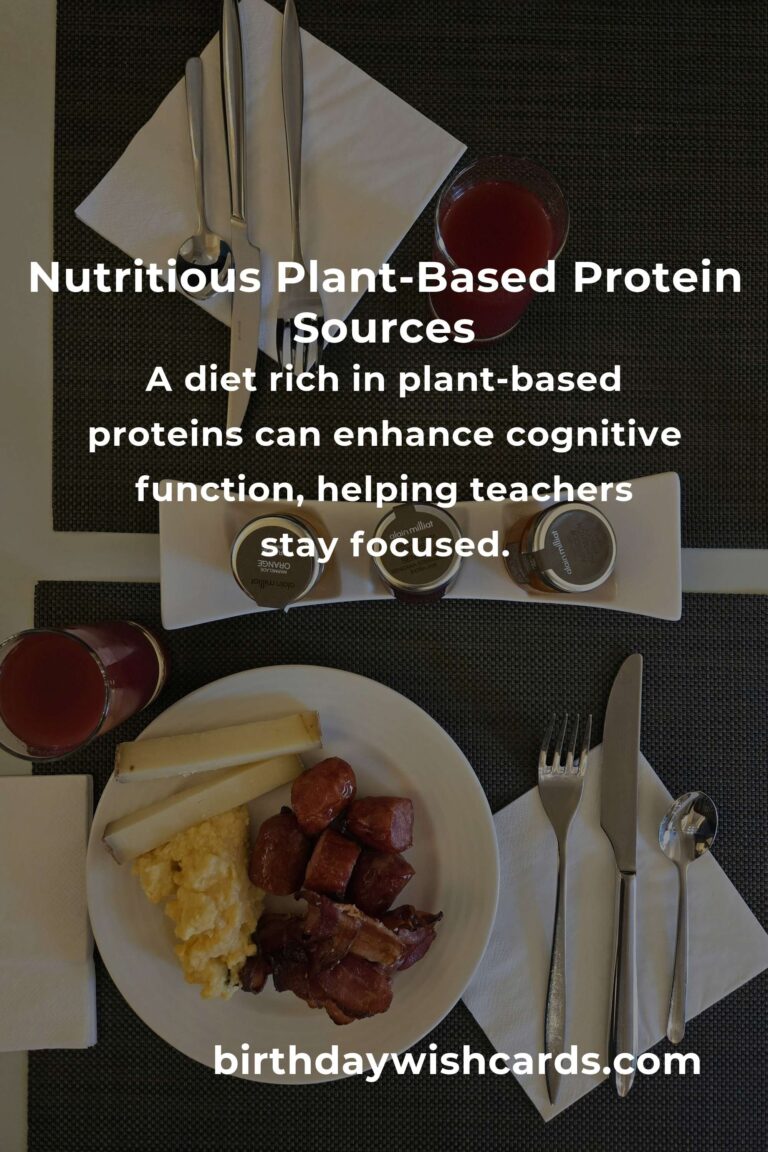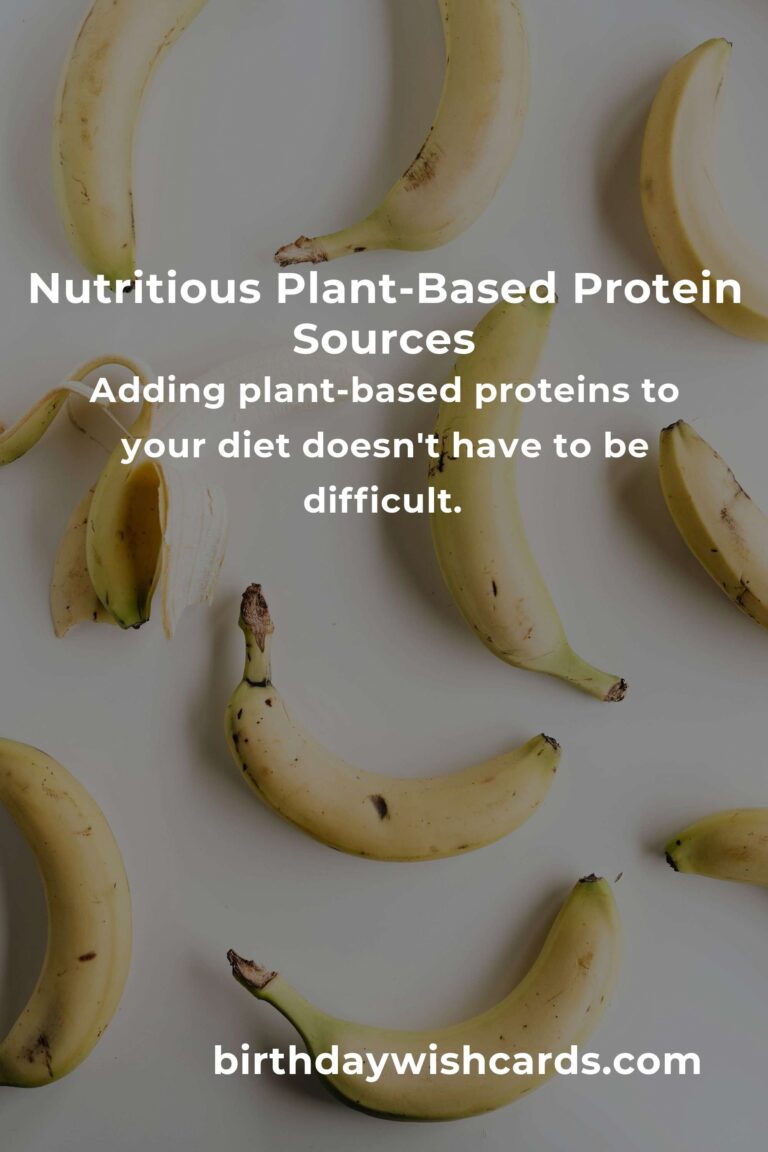
Teaching is a demanding profession that requires both physical and mental energy. To sustain this energy throughout the day, teachers need to consume a diet rich in proteins, particularly plant-based proteins. Not only do these proteins help in maintaining energy levels, but they also offer various health benefits.
Why Plant-Based Protein?
Plant-based proteins are derived from plants and are an excellent source of essential nutrients. They are lower in saturated fats and cholesterol compared to animal proteins, making them a healthier choice for heart health. Additionally, they are rich in fiber, which aids digestion and promotes a feeling of fullness, preventing unnecessary snacking during the day.
Top Sources of Plant-Based Protein
There are numerous sources of plant-based protein that teachers can incorporate into their diets. Some of the most effective include:
- Lentils: Packed with protein and fiber, lentils are perfect for soups, stews, or salads.
- Chickpeas: Versatile and nutritious, chickpeas can be used in hummus, salads, or roasted as a snack.
- Quinoa: This ancient grain is a complete protein, containing all nine essential amino acids.
- Black Beans: Great in wraps or chili, black beans are a flavorful protein source.
- Tofu and Tempeh: These soy-based proteins are excellent meat substitutes and can be used in a variety of dishes.
Benefits of Plant-Based Protein for Teachers
Plant-based proteins not only provide the necessary nutrients but also offer several benefits specifically for teachers:
- Increased Energy: With the right balance of protein and fiber, teachers can maintain their energy levels throughout the day.
- Improved Concentration: A diet rich in plant-based proteins can enhance cognitive function, helping teachers stay focused.
- Better Health: Reducing the risk of chronic diseases such as heart disease and diabetes.
Incorporating Plant-Based Proteins into Your Diet
Adding plant-based proteins to your diet doesn’t have to be difficult. Here are some simple tips:
- Start Your Day with a Protein-Rich Breakfast: Consider a smoothie with spinach, almond milk, and a scoop of plant-based protein powder.
- Snack Smart: Choose snacks like roasted chickpeas or nuts to curb hunger between classes.
- Plan Ahead: Prepare meals in advance to ensure you have healthy options available.
Conclusion
Embracing a diet rich in plant-based proteins can significantly benefit teachers by boosting energy levels, improving health, and enhancing concentration. By making small changes to their diet, teachers can meet the demands of their profession with vigor and vitality.
Plant-based proteins are a healthier choice for heart health and are rich in fiber.
Lentils, chickpeas, quinoa, black beans, tofu, and tempeh are top sources of plant-based protein.
A diet rich in plant-based proteins can enhance cognitive function, helping teachers stay focused.
Adding plant-based proteins to your diet doesn’t have to be difficult.
Embracing a diet rich in plant-based proteins can significantly benefit teachers.
#PlantBasedProtein #HealthyEating #TeacherHealth #ProteinSources #VeganDiet












